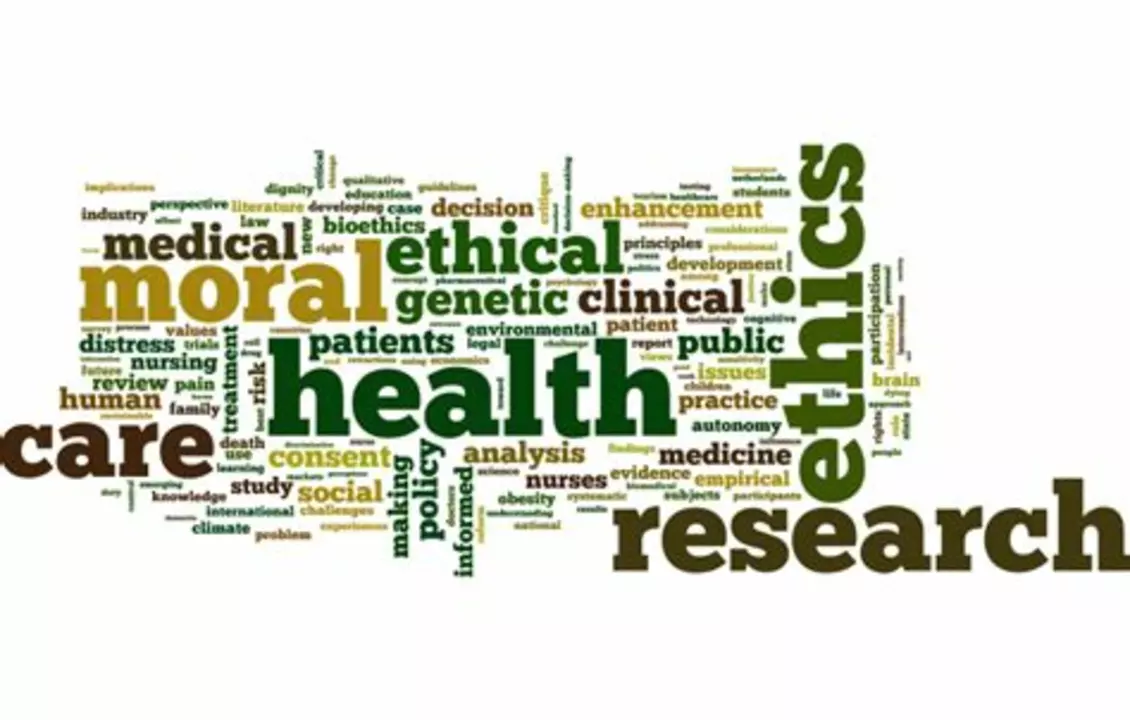Understanding Ethical-Based Health Care
As a blogger, I often come across various topics in the field of health care and medicine. One such topic that has piqued my interest is ethical-based health care. This concept revolves around the idea that medical professionals should always consider the ethical implications of their decisions and actions, ensuring that they are in line with the best interests of the patient. In this article, I will be discussing the various aspects of ethical-based health care and medicine, and why it is so important in today's world. So, let's dive in!
The Importance of Ethics in Health Care
Before we delve into the specifics of ethical-based health care, it's crucial to understand why ethics play such an important role in medicine. Medical professionals hold a unique position of trust and responsibility, as their decisions and actions can have a significant impact on the lives of their patients. By adhering to ethical principles, they can ensure that they are providing the best possible care and treatment for each individual. Moreover, ethical considerations help maintain a harmonious relationship between patients, caregivers, and the community at large, leading to better health outcomes for everyone involved.
Key Principles of Ethical-Based Health Care
There are several key principles that underpin ethical-based health care. These principles serve as guiding lights for medical professionals, helping them make morally sound decisions that prioritize the well-being of their patients. Some of these key principles include:
- Autonomy: Respecting the patient's right to make their own decisions about their health and treatment.
- Beneficence: Acting in the best interests of the patient, ensuring that any intervention or treatment does more good than harm.
- Non-maleficence: Avoiding any actions that may cause harm or suffering to the patient, even if those actions may provide some benefit.
- Justice: Ensuring that health care resources and treatment are distributed fairly and equitably among all patients, regardless of their background, social status, or financial means.
By adhering to these principles, medical professionals can ensure that they are providing ethical-based health care that puts the patient's best interests at the heart of every decision they make.
Implementing Ethical-Based Health Care in Practice
Now that we have a better understanding of the key principles of ethical-based health care, let's explore how these principles can be applied in a practical setting. One crucial aspect of implementing ethical-based health care is effective communication between medical professionals and their patients. By openly discussing the various treatment options available, along with their potential benefits and risks, medical professionals can empower their patients to make informed decisions about their health care.
Furthermore, medical professionals should always consider the cultural, religious, and personal beliefs of their patients when making treatment recommendations. By respecting the diverse backgrounds and values of their patients, they can provide care that is not only medically sound but also ethically appropriate.
Ethical Decision-Making in Health Care
As medical professionals navigate the complex landscape of health care, they will inevitably face situations in which ethical dilemmas arise. In these instances, it is essential for them to have a structured approach to ethical decision-making that takes into consideration the various options available and the potential consequences of each choice.
One such approach is the use of ethical frameworks, such as the four principles mentioned earlier in this article. By reflecting on these principles and how they relate to the specific situation at hand, medical professionals can arrive at a decision that is both ethically sound and in the best interests of the patient.
Ethical-Based Health Care and Medical Education
To ensure that future generations of medical professionals are well-equipped to provide ethical-based health care, it is vital that ethics education is incorporated into medical school curricula. By exposing students to the various ethical dilemmas they may face in their future careers, they can develop the critical thinking skills and moral reasoning necessary to navigate these complex situations effectively.
Moreover, ongoing ethics training and professional development should be a priority for all medical professionals, regardless of their level of experience. Regularly engaging with ethical issues and discussing them with peers can help foster a culture of ethical practice within the health care community.
The Role of Health Care Institutions in Promoting Ethical-Based Health Care
Health care institutions, such as hospitals and clinics, also have a crucial role to play in promoting ethical-based health care. By developing and implementing policies and procedures that prioritize ethical considerations, these institutions can create an environment in which medical professionals are encouraged and supported in their efforts to provide ethically sound care.
Additionally, health care institutions should strive to create a culture of transparency and accountability in which ethical concerns can be openly discussed and addressed. By fostering an environment of open communication and mutual trust, health care institutions can help ensure that ethical considerations remain at the forefront of medical practice.
Conclusion
In conclusion, ethical-based health care is a crucial aspect of modern medicine that prioritizes the well-being of patients and ensures that medical professionals make decisions that are both morally and medically sound. By adhering to key ethical principles, engaging in effective communication, and fostering a culture of ethical practice, medical professionals can provide the best possible care for their patients and contribute to the overall health and well-being of society.





